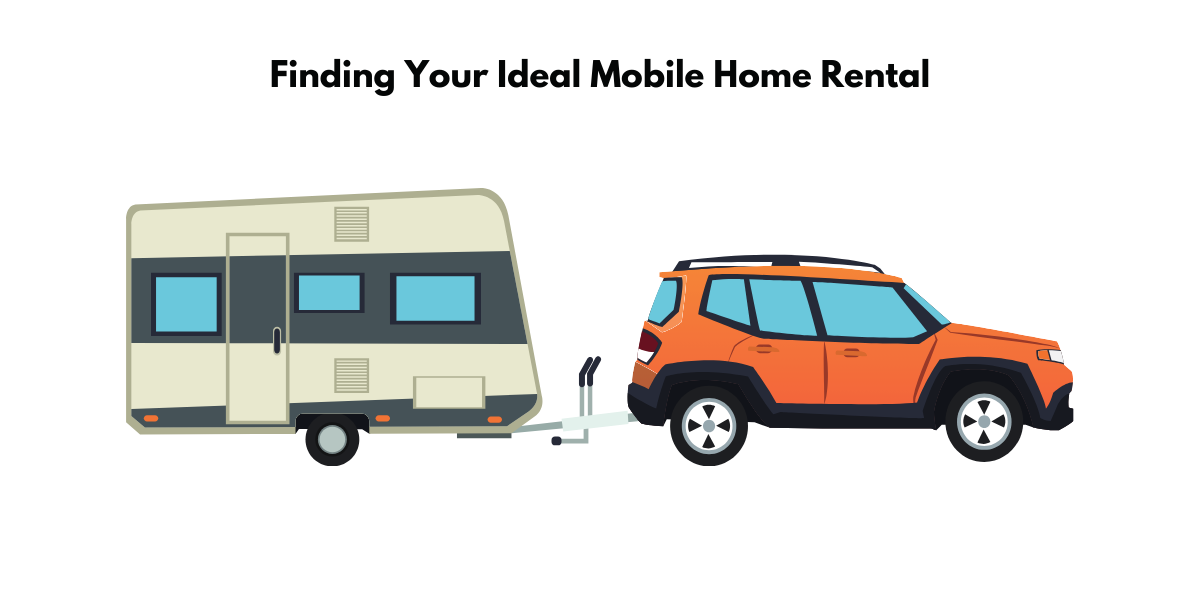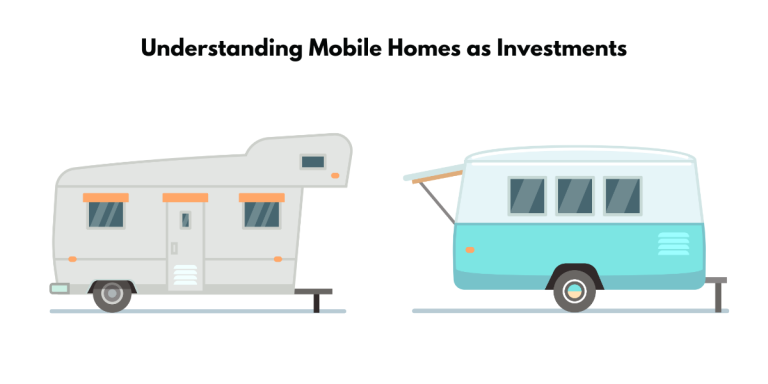Top Mobile Homes for Rent: Your Affordable Trailer Home Rent Living Solution
Welcome to Affordable Living with Mobile Homes
Embracing the Convenient Life on a Budget
Living within one’s financial means doesn’t have to mean sacrificing comfort or lifestyle. Mobile homes offer a unique blend of affordability and convenience that makes them an attractive option for many. Imagine a home where you have the flexibility to move if needed while enjoying all the creature comforts you cherish. Plus, there’s no need to worry about the headaches that often come with traditional homeownership.
The Rise of Mobile Home Popularity
The popularity of mobile homes is on the rise, and it’s easy to see why. As housing prices soar, more and more people are seeking alternatives that won’t leave them strapped for cash. Between 2014 and 2020, there was a steady increase in the average sales price of new mobile homes in the U.S., indicating a growing market. By 2021, a significant surge in interest reflected a nationwide trend towards cost-effective living. With states like Texas leading the way in mobile home numbers and manufacturing, the move towards mobile home living is more than just a fleeting trend—it’s a viable lifestyle choice.

Key Benefits of Renting Mobile Homes
Financial Freedom through Lower Costs
Imagine keeping more money in your pocket each month, all while enjoying the comforts of home. Renting a mobile home can pave the way to financial freedom with significant cost savings compared to traditional housing options. Generally, the rental costs for mobile homes are lower, allowing for budgetary breathing room. Utilities in these compact spaces tend to be less expensive as well, not to mention the reduced maintenance costs since mobile homes often require less upkeep due to their efficient use of space.
When comparing the average costs of renting a mobile home to traditional homes or apartments, there’s a noticeable difference driven by various factors, such as rent trends and the intrinsic value of the properties.
Monthly Rent:
- Mobile Homes: According to Statista, the average monthly rent for a mobile home in the U.S. reached $633 in the final quarter of 2022.
- Traditional Homes/Apartments: While specific data for the same period is not provided, apartment rents also saw an increase in 2022. Historically, traditional apartments have higher rental costs than mobile homes due to larger living spaces and location premiums.
Value Depreciation:
- Mobile Homes: They typically lose value faster than traditional homes, contributing to their affordability. Between 2014 and 2020, there was a gradual rise in the average sales price of new mobile homes, with a significant surge in 2021, signaling increased costs for prospective buyers.
- Traditional Homes/Apartments: Standard homes usually appreciate in value over time, which can make renting such properties more expensive as landlords aim to cover their investment costs and potential gains.
Costs Beyond Rent:
- Both mobile homes and traditional apartments will generally require tenants to pay When comparing the average costs of renting a mobile home to traditional homes or apartments, there’s a noticeable difference driven by various factors, such as rent trends and the intrinsic value of the properties.
Flexibility and Ease of Maintenance
Flexibility in housing can greatly enhance your life, offering the freedom to adapt as your needs change. Renting a mobile home brings that flexibility to your doorstep. Whether your job requires you to relocate frequently or you’re seeking a comfortable dwelling without a lengthy mortgage, mobile homes are the ticket to a hassle-free lifestyle. Moreover, their maintenance is notoriously user-friendly – most are compact in size, making system access and repairs less costly and more manageable. Refurbished systems are often available for replacements, further adding to the economic benefits.
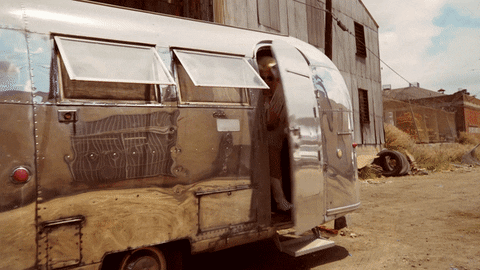
Finding Your Ideal Mobile Home Rental
Fine-Tune Your Search for the Perfect Fit
Start your journey to the perfect mobile home by first ironing out your needs and desires. Ask yourself key questions: Do you pine for a peaceful spot in a quaint community or the privacy of your own land? Are stainless steel kitchen appliances a must-have for you, or is a spacious living room higher on your list? Define your budget. Decide on the urgency of your move. By honing in on your specific requirements, you can use tools like precise geolocation data to sift through the listings, swiftly bypassing the homes that don’t meet your criteria and zeroing in on your dream dwelling.
Explore Popular Park Searches and Floor Plans
Your search for a perfect mobile home doesn’t stop at location and budget. The diversity among mobile home parks and the variety of floor plans available means you have the creative freedom to find a space that truly resonates with your aesthetic and practical preferences. Take a stroll through popular parks in your chosen area and experience first-hand the amenities, community vibe, and potential neighbors. Then, explore the vast array of floor plans, from cozy single wides to expansive triple wides, ensuring you make an informed choice about your future home.
What to Consider When Renting a Mobile Home
Understanding Lot Costs, HOA Fees, and Tenancy Agreements
Before you sign on the dotted line for your new mobile home, gain a clear understanding of the additional costs associated with the lot and community. Lot costs can vary significantly depending on location and amenities, while some communities may charge Homeowners Association (HOA) fees for shared space maintenance or community events. Furthermore, it’s crucial to comprehend the fine print in your tenancy agreement to avoid any hidden costs and to clarify rules about home occupancy and the ability to sublet.

The Pros and Cons of Mobile Home Parks Communities
Choosing to live in a mobile home park comes with a unique set of advantages and disadvantages. Among the pros, these communities often boast a plethora of amenities, like swimming pools, clubhouses, and social activities that can enrich your lifestyle and foster a sense of community. On the flip side, some may find the proximity to neighbors and community rules more restrictive than traditional neighborhoods. Plus, while lot rents can be reasonable, they can also increase over time, and you typically don’t build equity as you would with a house.
Living in a mobile home park community offers a variety of advantages and disadvantages, and the appeal can vary greatly depending on individual preferences and lifestyles. Here’s a comparative description showcasing the pros and cons of residing in such communities:
Pros:
- Socialization and Activities: Residents can enjoy a variety of social activities, clubs, and opportunities for building friendships within a close-knit community.
- Recreational Amenities: Many communities offer extensive amenities such as swimming pools, clubhouses, libraries, and recreational facilities like shuffleboard and pétanque.
- Pet-Friendly Options: Pet-friendly housing allows residents to live comfortably with their animal companions, which can be harder to find in other rental situations.
- Natural and Scenic Access: Some communities offer desirable access to lakes, oceans, or scenic views that might be less accessible in other living situations.
- Maintenance and Convenience: With amenities like on-site laundry facilities and maintenance of common areas, residents typically enjoy a more convenient and worry-free lifestyle.
- Stable Tenancy: Due to the limited options that cater to certain lifestyles and preferences, tenants tend to rent long-term, creating a stable and predictable community environment.
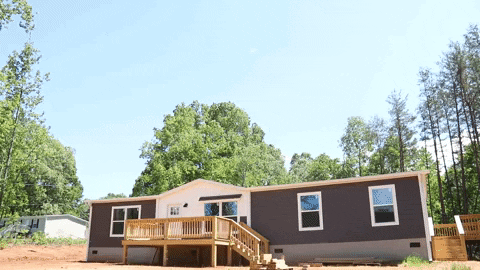
Cons:
- Space Limitations: Mobile homes typically offer less space compared to traditional homes.
- Limited privacy and close quarters: Mobile home park communities often have homes situated very close to one another, leading to potential issues with privacy and noise.
- Restrictive community rules: Some mobile home parks may have strict community rules that can limit what residents can do with their homes and yards.
- Variable quality of park management: The experience of living in a mobile home park can be highly dependent on the management’s efficiency and fairness, which varies from park to park.
- Risk of rent increases: Residents typically own their mobile homes but rent the land, which can lead to uncertainty regarding future rent increases.
- Possible stigma: There can be a societal stigma attached to mobile home park living, which can affect residents’ sense of community and belonging.
- Infrastructural issues: Some older mobile home parks may have outdated infrastructure, leading to issues with utilities such as water, sewer, and electrical systems.
- Less control over the property: Because the land is not owned by the mobile homeowner, there is less control over the land use and changes in the community.
- Vulnerability to severe weather: Mobile homes, particularly older models, may not be as sturdy as traditional homes during extreme weather conditions, potentially leading to safety concerns.
Navigating Your Rental Journey
Start Exploring Thousands of Options Nationwide
Your adventure to find the ideal mobile home rental starts right here. With over 43,000 parks and a myriad of home designs at your fingertips, RV COS presents the most comprehensive mobile home database. Navigate through the sea of choices using intuitive search tools that refine by location, price, community amenities, and more. Whatever you’re searching for, from a sun-kissed abode on the Florida coast to a cozy nest in the heartland, your perfect mobile home is waiting for you to discover.
The RVCOS platform is designed with a user-friendly interface that allows prospective renters to easily navigate through a vast selection of mobile home rental opportunities. By applying various filters such as location, budget, amenities, and community type, users can tailor their search to find their ideal mobile home that fits their unique lifestyle needs. Additionally, the service provides access to contact information and terms of use agreements to ensure a transparent and secure rental process.
Tips for a Smooth Transition to Your New Mobile Home
Transitioning to your new mobile home can be seamless with the right approach. Begin by downsizing possessions to match your space, making your move less cumbersome. Connect with your future community manager early to understand the specific move-in procedures and community rules. It’s also wise to set up utilities and change your address ahead of time to ensure a smooth first day in your new home. And don’t forget to reach out and get to know your neighbors – they can be a valuable resource and make your transition even more welcoming.
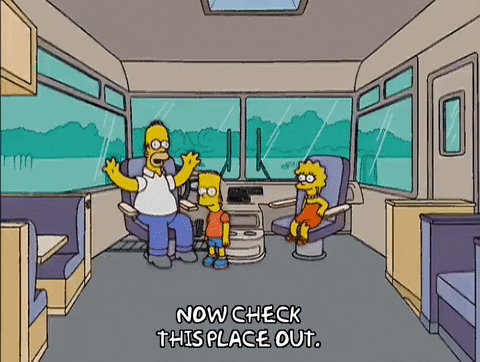
Frequently Asked Questions
Is Renting a Mobile Home a Good Financial Decision?
Renting a mobile home can be an excellent financial decision. Due to lower rental values, reduced property taxes, and affordable insurance costs, you may find notable savings compared to renting traditional housing. Additionally, the potential for lower utility and maintenance expenses adds to the financial appeal. It’s a practical choice, allowing for the use of funds in other areas of your life while still enjoying a comfortable living space.
How Do I Select the Right Mobile Home Park or Community?
Selecting the right mobile home park or community starts with identifying what’s important to you. Consider the location relative to work, school, or family. Assess the amenities, from basic offerings like laundry facilities to luxuries like swimming pools. Examine community reviews, understand the management’s reputation, and visit to gauge the community’s atmosphere. Prioritize safety, rules, and whether it aligns with your lifestyle, whether it’s family-friendly or a 55+ community.
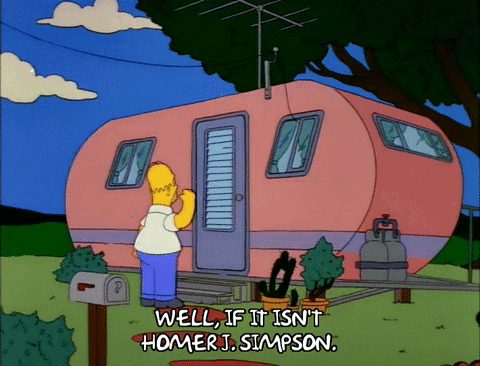
When visiting a mobile home park or community in your quest to find the perfect place, there are several factors to consider. Here are some tips on what to look out for during your community visit:
- Environment and Surroundings: Take note of the overall environment. Is the community clean and well-maintained? Are the common areas such as lawns and walkways in good condition?
- Amenities: Assess the amenities provided. Does the community offer the types of features that are important to you, such as swimming pools, clubhouses, and fitness centers?
- Social Atmosphere: Observe the social vibe of the community. Are there social activities and events? Talk to current residents to gauge their friendliness and communal spirit.
- Safety and Security: Consider the safety measures in place. Does the community appear to be safe, and does it have security features such as gated access or security personnel?
- Pet-Friendly Policies: If you have pets, look for pet-friendly policies. Are there restrictions on the number of pets or specific breeds? Is there adequate space for pets to be walked and are there any pet amenities?
- Noise Levels: Listen to the noise levels within the community and nearby areas. Is the community quiet and peaceful, or is there a lot of noise from traffic, construction, or other sources?
- Community Rules and Regulations: Understand the community rules and regulations. Are there restrictions or guidelines that might affect your lifestyle? Make sure they align with your needs and wants.
- Proximity to Services and Conveniences: Check the proximity to essential services such as shopping centers, hospitals, public transportation, and places of worship.
- Access to Nature and Leisure Activities: Consider if the community provides access to natural areas such as lakes, parks, or trails. Look for leisure activities offered within the community, like fishing, boating, and other recreational facilities.
- Overall Affordability: Assess the cost of living in the community, including lot rent, utilities, and any additional fees for amenities or services. Ensure it fits within your budget.
- Future Expansion or Development: Inquire about any planned expansions or developments that may affect living conditions in the future, such as construction projects or additional amenities.
- Management and Staff: Meet with the management team and staff to get a sense of how the community is operated. Are they friendly, responsive, and professional?
Remember, your choice of community is a significant factor in your overall satisfaction with mobile home living. By paying attention to these details, you’ll be able to select a mobile home park or community that aligns well with your lifestyle and ensures a pleasant living experience.

